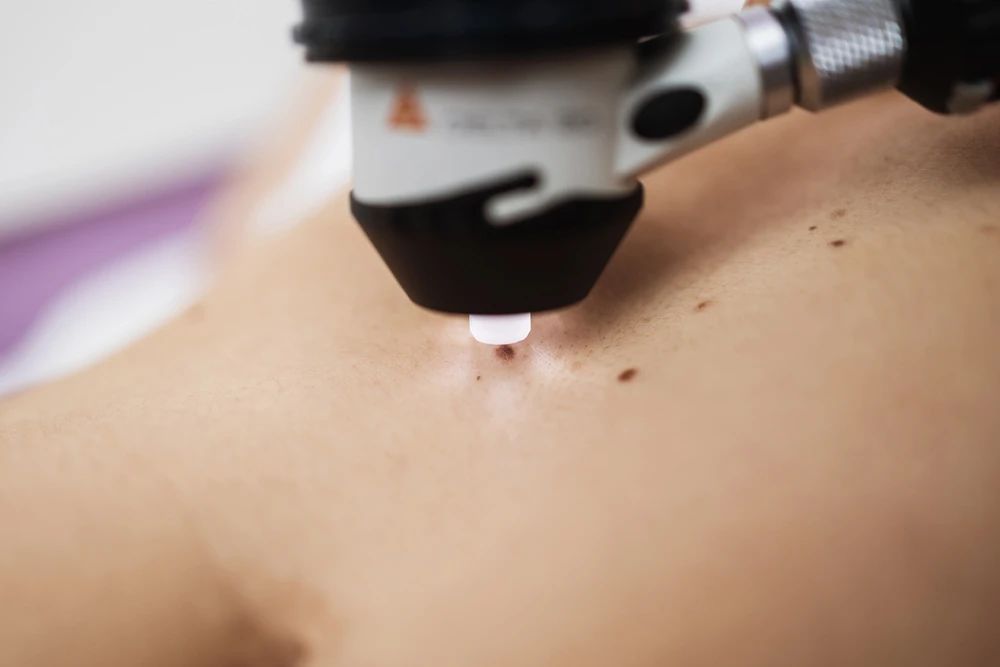Common Causes Of Male Infertility
2021-01-14

Many people think fertility is a women’s issue. In fact, male infertility is more common than you might think.
The facts about male infertility
Infertility is generally determined as the inability to naturally conceive a child. If you’ve been trying to have a baby for over a year without success, your doctor might start talking to you about infertility.
The World Health Organization believes that male infertility is largely underestimated, and that infertility in general affects a significant portion of the world’s population.
There is a lack of accurate and consistent data across the globe, but scientists approximate that men are solely responsible for around 20-30% of infertility cases, and contribute to around 50% of cases overall.
Here are some of the most common conditions affecting male fertility.
Low sperm count
Doctors consider anything below 15 million sperm per milliliter of semen as an abnormally low sperm count. A low sperm count is also referred to as oligospermia.
Low sperm count is diagnosed via semen analysis. If you’re having trouble conceiving, it’s likely your doctor will do a semen analysis to check for a few potential problems with your sperm.
A healthy number of sperm is necessary to give you the best chance of conceiving each month. The less sperm you have, the lower your chances of getting your partner pregnant.
Low sperm count can be caused by:
· Genetics
· Lifestyle and overall health
· Drug or alcohol abuse
· Sexually transmitted diseases (STDs)
· Surgery or trauma to the genitals
Treating low sperm count:
· Surgery, if there is a potential obstruction or internal damage due to varicoceles
· Medication
· Antibiotics to treat any infections
· Hormone therapy
· Diet and lifestyle changes are often the most effective way of improving your sperm count. Obesity can lead to a low sperm count, so if you’re overweight focus on a healthy diet and exercise. Cut out alcohol, smoking and drugs. Wearing tight underwear may also affect your sperm count, so wear loose cotton boxers if you can.
Azoospermia
Men with azoospermia have no sperm at all in their semen. This condition accounts for around 15% of all male infertility cases, and comes without any noticeable symptoms. Azoospermia will prevent you and your partner from conceiving naturally as there is no sperm present to fertilise your partner’s egg.
There are a few types of azoospermia:
· Testicular azoospermia, which prevents your testicles from making sperm. This could be due to injury or trauma, infection, childhood illness, cancer and cancer treatments, or inherited conditions such as Kilnefelter’s syndrome.
· Post-testicular or obstructive azoospermia, which occurs when your testicles produce sperm but they can’t be released due to a blockage or surgery like a vasectomy. Retrograde ejaculation, where the semen goes into your bladder during ejaculation, can also cause this.
· Pretesticular azoospermia, where your testicles are healthy but your body doesn’t signal them correctly to produce sperm. This could be due to a hormone imbalance or some cancer treatments, and is less common.
Treating azoospermia:
· Treatment options for azoospermia are dependent on the type you have. It’s important for your doctor to do a thorough investigation to find out the cause. You might be able to have surgery to remove a blockage, or sperm retrieval may also be possible if your body is producing sperm, but it can’t be released. Sperm retrieved by surgical methods can only be used in IVF (in vitro fertilization).
Erectile dysfunction
You may have healthy sperm and the ability to conceive, but if you are unable to successfully have sexual intercourse, you can’t get your partner pregnant. Erectile dysfunction, the inability to get or maintain an erection, is a common problem for men and is often reversible.
Causes of erectile dysfunction:
· Hormone imbalances
· High blood pressure
· Narrowed arteries restricting blood flow
· Diseases affecting the nervous system
· Diabetes
· Injury or trauma
· Medication
· Lifestyle factors such as drinking, smoking, and drugs
· Stress or mental health issues
· Treating erectile dysfunction
Erectile dysfunction is often reversible with simple lifestyle changes like losing weight and lowering your blood pressure. There are also medications such as Viagra, injectable and suppositories that can help you get an erection. However, if you have an underlying illness like heart disease or diabetes, or even stress or anxiety, your doctor will focus on treating that and the secondary erectile dysfunction should improve.
Other causes of male infertility
There are a myriad of other problems that could affect your chances of conceiving, including:
· Advanced age
· Poor sperm quality or mobility
· Sexually transmitted infections
· Birth defects
· Autoimmune disorders, where your body attacks your own sperm
· Varicoceles, which are enlarged varicose veins that can lead to azoospermia
· Steroid abuse
· Exposure to toxic or hazardous substances
· Prolonged or repeated exposure to high temperatures
What to do next
If you’re struggling to conceive, visit your doctor or a fertility specialist. An initial exam and semen analysis may give an indication of what is going on. Further testing can be done from there if the problem isn’t clear-cut.
Fertility is a tricky issue and often a combination of factors from both the male and female side can lower your chances of getting pregnant. Sometimes infertility is simply unexplained, which is why sperm retrieval and IVF are so common. Staying as healthy as possible will give you the best chance of staying fertile, but if you’re struggling, seek help. There are lots of options available for couples that need them.
Article reviewed by Dr. Sean Wang, Urologist at ParkwayHealth

Copyright: Health Plus an online health and wellness web resource developed by Parkway Singapore
References:
1. Agarwal, A., Mulgund, A., Hamada, A., & Chyatte, M. R. (2015). A unique view on male infertility around the globe. Retrieved 25/7/19 from https://www.ncbi.nlm.nih.gov/pmc/articles/PMC4424520/
2. Chang, L. (2018, Sep 9) What Helps With Sperm Count and Quality? Retrieved 25/7/19 from https://www.webmd.com/infertility-and-reproduction/guide/sperm-count#2
3. Ernst, H. (2019, Feb 4) Everything You Need To Know About Infertility. Retrieved 25/7/19 from https://www.healthline.com/health/infertility
4. Felson, S. (2019, May 9) Semen Without Sperm: What Causes Azoospermia? Retrieved 25/7/19 from https://www.webmd.com/infertility-and-reproduction/guide/azoospermia-causes-treatment#2
5. Infertility Is A Global Public Health Issue. (ND) Retrieved 25/7/19 from https://www.who.int/reproductivehealth/topics/infertility/perspective/ens/
6. Male Infertility. (ND) Retrieved 25/7/19 from https://www.mayoclinic.org/diseases-conditions/male-infertility/symptoms-causes/syc-20374773
7. Mastroianni, B. (2019, Apr 2) New Research May Lead To Improved Male Infertility Treatments. Retrieved 25/7/19 from https://www.healthline.com/health-news/dna-of-sperm-from-infertile-men-as-healthy-as-sperm-from-fertile-men
8. Murrell, D. (2018, Aug 29) What Is A Normal Sperm Count? Retrieved 25/7/19 from https://www.healthline.com/health/mens-health/normal-sperm-count
9. Robinson, J. (2019, Feb 23) Infertility and Men. Retrieved 25/7/19 from https://www.webmd.com/infertility-and-reproduction/male-fertility-test#3





























